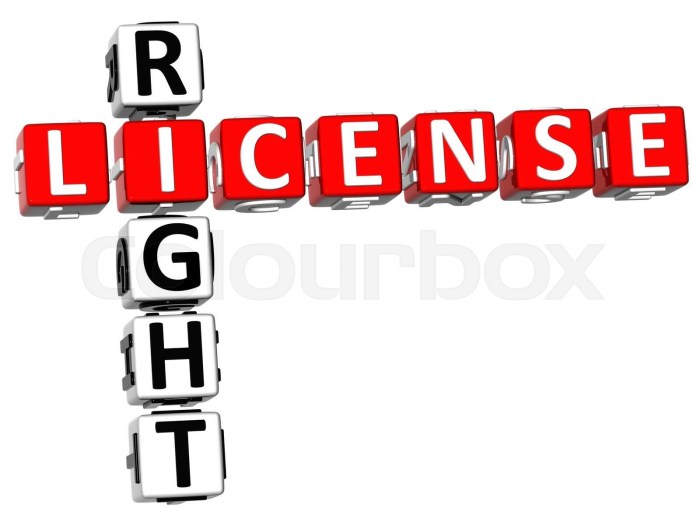Grants a right to crossword – In the realm of crossword puzzles, the concept of “granting a right” takes on a unique significance, shaping the very foundation of this beloved pastime. This article delves into the legal implications and intricacies surrounding the granting of rights in the context of crossword puzzles, providing a comprehensive understanding of this fascinating topic.
From the nuances of transferring and revoking rights to the distinctions between rights and privileges, this exploration unravels the complexities of this subject, offering insights into the legal framework that governs the granting of rights.
Legal Implications of Granting a Right

Granting a right to someone establishes a legally binding agreement that confers specific privileges or entitlements upon the recipient. These rights may vary in nature and scope, but they generally carry significant legal consequences.One of the primary implications of granting a right is that it creates a corresponding obligation on the part of the grantor.
For example, if a landowner grants a right of way to a neighbor, the landowner is obligated to allow the neighbor to cross their property. Conversely, the neighbor is obligated to respect the landowner’s property rights and use the right of way only for its intended purpose.Another
legal implication of granting a right is that it can create a property interest. In some cases, a right may be so significant that it is considered a form of property. For example, a right to receive royalties from a copyright or patent is considered a valuable property interest that can be bought, sold, or inherited.
Transferring and Revoking Rights
In general, rights can be transferred or revoked only with the consent of both the grantor and the recipient. However, there are some exceptions to this rule. For example, some rights, such as the right to vote, are considered fundamental rights that cannot be revoked without due process of law.In
You may encounter the term “grants a right to” in crossword puzzles. To expand your vocabulary, you can explore words with the root ject , such as “eject” or “subject.” This linguistic knowledge will enhance your crossword-solving abilities, allowing you to confidently fill in those elusive squares.
addition, some rights may be transferred or revoked by operation of law. For example, a right of way may be extinguished if the property over which it passes is sold or condemned. Similarly, a right to receive royalties from a copyright or patent may be terminated if the copyright or patent expires.
Differences Between Rights and Privileges

Rights and privileges are distinct concepts in law. Rights are inherent entitlements that individuals possess by virtue of their humanity or citizenship, while privileges are conditional benefits granted by authorities or institutions.
Vested Rights
Vested rights are those that have become legally established and protected. They are not subject to arbitrary withdrawal or modification by the government or other entities.
To be vested, a right must:
- Be absolute and not subject to conditions
- Have been acquired through legal means
- Have been exercised or acted upon
Legal Protections for Vested Rights, Grants a right to crossword
Vested rights are protected by various legal doctrines, including:
- Due Process:Individuals cannot be deprived of vested rights without a fair hearing and due process of law.
- Contract Clause:The government cannot impair the obligation of contracts that create vested rights.
- Takings Clause:The government cannot take private property for public use without just compensation.
3. Distinguishing Rights from Privileges

Understanding the distinctions between rights and privileges is crucial for comprehending the complexities of legal systems. Rights are fundamental entitlements guaranteed to individuals, while privileges are granted on a discretionary basis.
Key Differences between Rights and Privileges
| Characteristic | Right | Privilege |
|---|---|---|
| Guarantee | Legally protected and enforceable | Granted at the discretion of an authority |
| Revocability | Typically cannot be taken away without due process | Can be revoked at any time |
| Scope | Universal or apply to a specific group | Limited to a specific individual or group |
| Basis | Inherent or derived from law | Conferred by an authority |
Examples of Rights and Privileges
- Rights:Freedom of speech, right to a fair trial, right to vote
- Privileges:Driving a car, attending a private club, receiving a scholarship
Process of Granting, Transferring, and Revoking a Right
The process of granting, transferring, and revoking a right involves several steps:
- Granting:Rights are typically granted through legislation, judicial decisions, or constitutional provisions.
- Transferring:In certain cases, rights can be transferred from one person to another through contracts or inheritance.
- Revoking:Rights can be revoked by the same authority that granted them, but only through proper legal procedures.
Understanding the distinctions between rights and privileges is essential for navigating legal systems and ensuring the protection of individual freedoms.
4. Legal Framework for Granting Rights: Grants A Right To Crossword

The legal framework surrounding the granting of rights is a complex and multifaceted one. It involves a wide range of legal principles, doctrines, and statutes. One of the most important principles is that rights are not absolute. They are always subject to certain limitations and restrictions.
These limitations and restrictions are designed to protect the rights of others and to ensure that rights are not abused.
There are many different types of rights that can be granted. Some of the most common include:
- Civil rights
- Political rights
- Economic rights
- Social rights
- Cultural rights
The legal procedures involved in granting a right vary depending on the type of right being granted. In some cases, a right can be granted by a simple agreement between two or more parties. In other cases, a right may need to be granted by a court or other government authority.
Key Questions Answered
What are the legal implications of granting a right to someone?
Granting a right to someone creates a legal obligation for the grantor to respect and uphold that right.
Can rights be transferred or revoked?
Yes, rights can be transferred or revoked under certain circumstances, such as through a written agreement or court order.
What is the difference between a right and a privilege?
A right is a legal entitlement that cannot be taken away without due process, while a privilege is a benefit that can be granted or revoked at the discretion of the authority.
